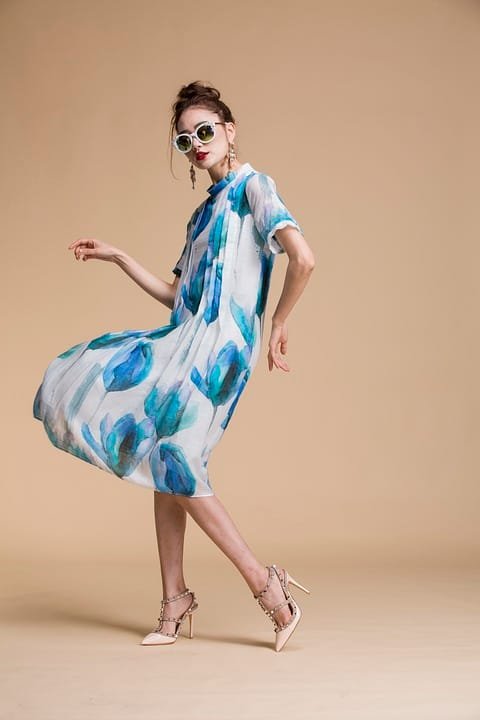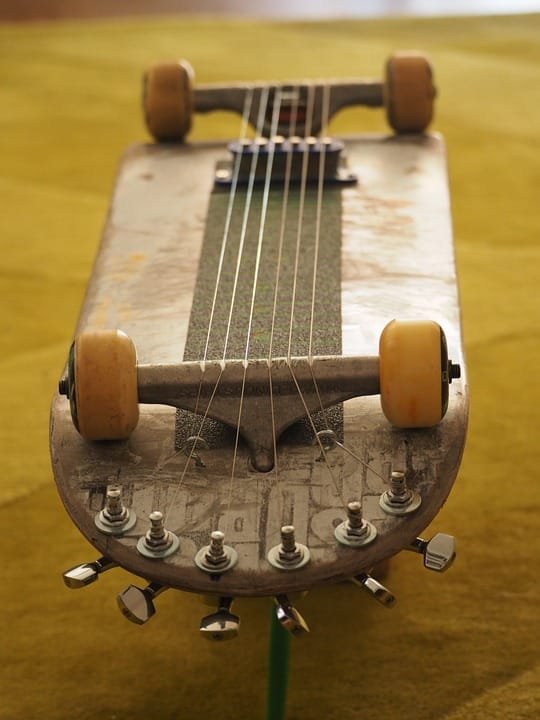Dress to Impress (Sustainably): The Ultimate Guide to Eco-Friendly Fashion

Dress to Impress (Sustainably): The Ultimate Guide to Eco-Friendly Fashion
Introduction
As a fashion enthusiast, I’ve always been passionate about dressing to impress. But I’ve recently discovered that sustainable fashion is not just about making a statement, but also about making a positive impact on the environment and the people involved in its production. In this article, I’ll share my journey into eco-friendly fashion, the benefits of adopting sustainable practices, and practical tips to transition to a more sustainable wardrobe.
The Dark Side of Fast Fashion
The fashion industry is one of the most polluting industries in the world, responsible for 10% of global greenhouse gas emissions. (1) Fast fashion, in particular, is the root of the problem. Cheap, trendy clothing is designed to be used and discarded quickly, generating an astonishing 12.8% of the world’s municipal solid waste. (2) This fast fashion treadmill is not only harming the environment but also exploiting workers, with many clothing factories having poor working conditions and low wages. (3)
The Power of Sustainable Fashion
So, what is sustainable fashion, and how can we make a change? Sustainable fashion is not about sacrificing style for sustainability; it’s about making conscious choices that support the environment, people, and ourselves. Here are some key elements to consider:
Eco-Friendly Materials
Look for eco-friendly materials like organic cotton, Tencel, or recycled polyester. These alternatives reduce waste, conserve water, and minimize chemical use.
Slow Fashion
Slow down! Avoid impulse purchases, and prioritize investing in high-quality, timeless pieces. This approach reduces waste, energy consumption, and supports local communities.
Upcycling and Repurposing
Get creative! Turn old clothes into new items, like transforming an old t-shirt into a reusable bag or a scarf. The possibilities are endless!
Eco-Friendly Brands to Look Out For
Reformation
Known for their sustainable practices, Reformation is a pioneer in eco-friendly fashion. They use 100% renewable electricity, have a carbon offsetting program in place, and offer recycling programs for their customers.
Patagonia
Patagonia has been a leader in environmental activism since 1972. They use environmentally-friendly materials, have a recycling program, and encourage customers to repair and maintain their products.
Thrift Shopping: A Treasure Trove of Sustainability
Thrift shopping is not just about being frugal; it’s an opportunity to find unique, one-of-a-kind pieces while reducing waste. Here are some tips to make the most of your thrift shopping experience:
Be Patient
Take your time, and thoroughly inspect each item. Remember, you’re not just buying a piece of clothing; you’re preserving its history.
Get Creative
Think outside the box! Thrift shopping is all about finding hidden gems. Don’t be afraid to mix and match, pair unexpected pieces, and create your own style.
Mend and Repurpose
Fix tears, replace buttons, and give your new finds a new lease on life. Your clothes will last longer, and you’ll reduce waste.
Tips to Make a Sustainable Wardrobe
1. Assess Your Closet
Conduct a wardrobe detox and identify items you no longer wear or need. Donate, repurpose, or recycle them.
2. Prioritize Quality Over Quantity
Invest in timeless, high-quality pieces that won’t quickly go out of style. This approach reduces waste and supports sustainable brands.
3. Reduce, Reuse, Repurpose
Implement the 3Rs in your daily life. Upcycle old clothes, repair instead of replace, and reduce your overall consumption.
Conclusion
Dressing sustainably is not only a trend; it’s a conscious choice we make every day. By understanding the impact of fast fashion, adopting eco-friendly practices, and making informed decisions, we can create a better future for the environment, people, and ourselves. Remember, sustainable fashion is about self-expression, creativity, and commitment to making a positive difference.
FAQs
Q: How do I start my sustainable fashion journey?
A: Begin by researching eco-friendly brands, upcycling tutorials, and thrift shopping tips. Start small, and gradually incorporate sustainable practices into your daily life.
Q: What are some affordable alternatives to fast fashion?
A: Thrift shopping, DIY projects, and second-hand stores are great alternatives to fast fashion. You can also look for discounted prices on high-quality, sustainable products during sales or utilize discount codes.
Q: How can I encourage others to adopt sustainable fashion practices?
A: Lead by example, share your experiences, and educate others on the benefits of sustainable fashion. Encourage friends and family to make similar changes, and support local events promoting environmental awareness.
By choosing to dress sustainably, we can create a ripple effect that inspires positive change. Let’s make a statement in the right direction, one outfit at a time.
References:
(1) Ellen MacArthur Foundation: A New Textile Economy
(2) Ellen MacArthur Foundation: clothing consumption and waste
(3) International Labor Organization: Fashion’s negative impact on workers
H1: Dress to Impress (Sustainably): The Ultimate Guide to Eco-Friendly Fashion
H2: The Dark Side of Fast Fashion
H3: The Power of Sustainable Fashion
H4: Tips to Make a Sustainable Wardrobe









